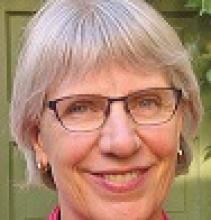Tribes are good (essential, I said in my last column). And yet there is danger when tribal extremes become virulent tribalism. Such tribalism takes what is good and life-giving about a bounded group and morphs it into a destructive, negative force. It proclaims the superiority of one group over another. It devalues and dehumanizes those not in the tribe. It feeds on fear and mistrust, and incites violence against the other, simply because they are not tribal members.
Mennonite tribes in North America can be strong and powerful, sometimes tending towards exclusivism, often expressed unconsciously.
I once heard church historian Arnold Snyder say that 16th-century Anabaptists who experienced persecution formed rigid boundaries for self-protection. Keen attention to who was in and out—who safely belonged and who may be a dangerous outsider—was necessary for the tribe’s survival. Such a characteristic, like the “Mennonite name game,” continues today, even though it is no longer necessary and may even erode the group’s health and growth.
Although not a “cradle Mennonite,” I have enjoyed a place in or near the centre of the dominant tribes. But I have also experienced being an outsider. Sometimes I manage that comfortably, observing with pleasure the deep roots, shared history and cultural traditions of the tribe I am outside. At other times, I am frustrated by the invisible yet defining line being drawn. The one who is making the boundary is in, and I am not. The speaker is fully a member of the tribe, and I am something less than that. There is implied privilege and disadvantage.
For example, I have often heard, “Miller: that’s not a Mennonite name, is it?” To which I may reply, “Do you know who was a principal founder of Mennonite Central Committee?” (Orie Miller, for those not in the know). Or there was the sweet oma who incredulously asked me three times, in about as many minutes, “You don’t speak any German?” Each time, I replied patiently that I didn’t, but by the third time I confess I was ready to throttle her! And another member of the tribe brought tears to my eyes when he said, in a kind attempt to explain tribal customs, “You’re not even Mennonite”—meaning “you don’t share the same Mennonite roots that I do”—although I had been Mennonite for more than 30 years at the time.
While we want and need tribes, we also need to look beyond our tribe to see the precious worth in all humans, all equally children of God. Those of us taking part in the great multi-tribal Anabaptist gathering at Mennonite World Conference assembly this past summer glimpsed a little piece of God’s big, openhearted tribe.
Or sometimes we grasp the vision of Paul, who laboured passionately to stretch a tribe out of its old understandings to make space for the whole world invited in by the love of Jesus. When he preaches to the Galatians, “There is no longer Jew or Greek, there is no longer slave or free, there is no longer male and female, for you are all one in Christ Jesus” (3:28), we are pulled beyond our tribe. In Ephesians 2:14-16, he adds that Jesus “has broken down the barrier, the dividing wall of hostility” between tribes, to create one new humanity, reconciling all to God through the cross.
Can we let Paul’s compelling vision pull us from our tribal insecurities toward a generous embrace of all God’s children? Maybe it helps to remember and hold graciously, “Once you were not a people, but now you are the people of God”
(I Peter 2:10).
Melissa Miller (familyties@mymts.net) has a passion for helping people develop healthy, vibrant relationships with God, self and others.



Add new comment
Canadian Mennonite invites comments and encourages constructive discussion about our content. Actual full names (first and last) are required. Comments are moderated and may be edited. They will not appear online until approved and will be posted during business hours. Some comments may be reproduced in print.